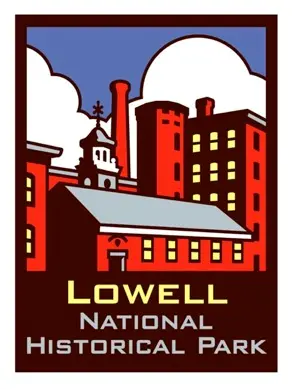Lyddie Literature Circle
Katherine Paterson's novel Lyddie is a favorite among classes visiting Lowell and the Tsongas Center. The following teacher-developed activity, a "Literature Circle," works to stimulate student-led discussions focusing on themes, literary elements, connections to history, and reflective connections to the students' lives.
Students are divided into several small groups. They complete assigned readings and then design a list of 5-10 literal questions, 5-7 inferential questions, and 3-5 evaluative questions for group discussion. All questions go into a group folder given to a Discussion Leader.
Students also create one reflective question for the group's next discussion. This question should help the group connect the reading to themselves.
Below are examples of the four kinds of questions students develop for this activity. Following the model questions are assessment criteria.
Model Questions for Discussion Leaders
- Literal Questions: use facts straight from the book
- Inferential Questions: draw conclusions from facts to figure out what happened
- Evaluative Questions: involve thoughts and judgments about the writing
- Reflective Questions: connect the story to the reader's life
Literal:
- What is the first thing that we learn about Mama?
Mama never laughs. p.1, paragraph 1, line 2 - Who is the youngest?
Agnes p.1, paragraph 1, line 5 - What was the date of the year of the bear?
1843 p.1, paragraph 1, last line - What was Lyddie's thought as she watched the bear from the loft?
"Don't break nothing." p. 3, paragraph 1, line 6 - Where are they going tomorrow?
Poultney p. 5, paragraph 2 - What does Mama say to Charles when he asks how father will find them?
She says he went searching for vain riches and will never come back p. 5, paragraph 6 - What was the only charity that Lyddie dreaded more than Aunt Clarissa?
the township's poor farm p. 6, paragraph 2 line 2 - Who was sent to make sure Agnes and Rachel reached Uncle Judah's farm safely?
Charles p. 6, paragraph 4 line 1 - Charles tells Lyddie to ask for help from whom?
Their neighbors, the Stevenses p. 7, line 2 - To whom is Lyddie hired out?
M. Cutler at the tavern p. 9, the letter, line 2
Inferential:
- What is the "joke" that Charles finds in Mama's letter?
The letter says "we can still hop" instead of we can still hope. p. 9, paragraph 4 - What seems to be unusual about the Stevenses?
They are Quakers and abolitionists. Mama doesn't approve of them. - She thinks they are heathens. Charles thought they were good neighbors. p. 6-7
- Compare Mama's reaction to everyone else's after the bear left.
p. 4 - What was the main reason that their father headed West?
debt, p. 6 , paragraph 2 - What is the metaphor Mama makes regarding the bear?
p. 4, paragraph 7 - How did the cows get born every spring?
p. 7, paragraph 1, lines 8-14 - Describe the change in Mama since their father left.
p. 4, paragraph 3, p. 5, paragraph 8-10
Evaluative:
- Why does Katherine Paterson bring the bear to the cabin in the first chapter? (What does she reveal about the characters by doing so?)
- What do you think the bear represents in the book?
- How does Lyddie feel about the Stevens family? What does that reveal about her character?
p. 7, paragraph 2, line 3 - Why do you think the memory of that one morning stayed with Lyddie?
p. 8, paragraph 2 - What do you believe the conflict in the story is? Find the inciting force.
Reflective:
- Think about a time when you have felt responsible for other members of your family. Have you ever been a baby-sitter? Have you ever had to fill the role of a parent? Have you ever had to go without something you thought you really needed (as Lyddie and her siblings have to do without food)?
- Describe how you can relate your experience to Lyddie's experience. Write a paragraph explaining how you are like Lyddie in any way.
Completion
You prepared an appropriate number of literal, inferential, evaluative and reflective questions each time you were responsible for being the leader for your group.
Quality and Relevance
Your literal questions call for careful reading of the text.
Your inferential questions call for thorough understanding of the material.
Your evaluative questions require important judgments to be made about the way the author constructed the story.
Your reflective questions call for relevant connections to be made between the text and the reader.
By discussing your questions, your group should have gained a deeper understanding of important literary elements, including plot, structure, character development, and writer's style.
Answers to Reflective Questions
You answered all the required questions, using well-developed paragraphs which re-stated the question in the form of a topic sentence.
Quality and Relevance
Your writing shows thought and effort to make important connections between the book and your own personal experiences.
- Developed by Michael Miller & Steve Bober, Carlisle Middle School, Carlisle, MA


